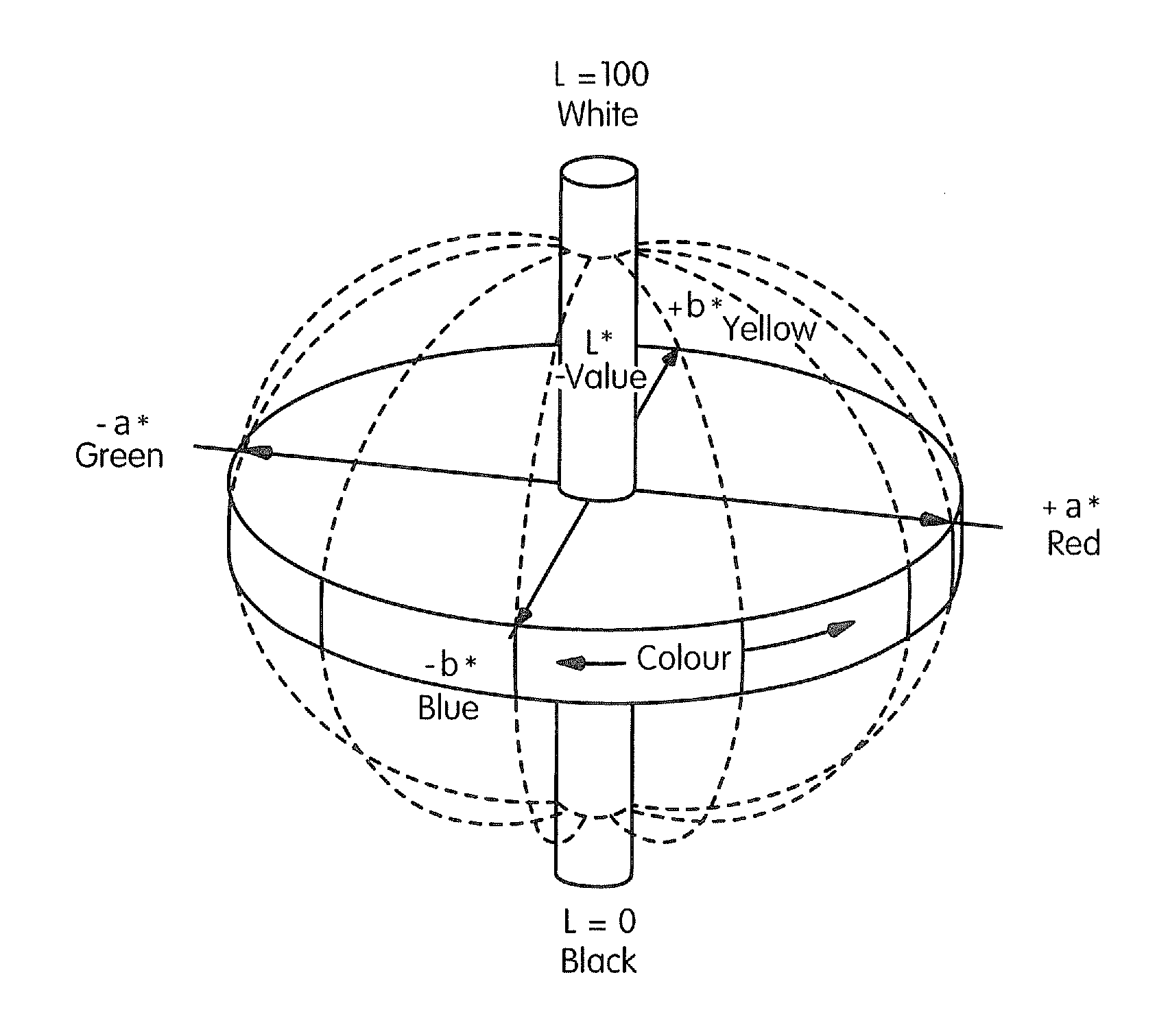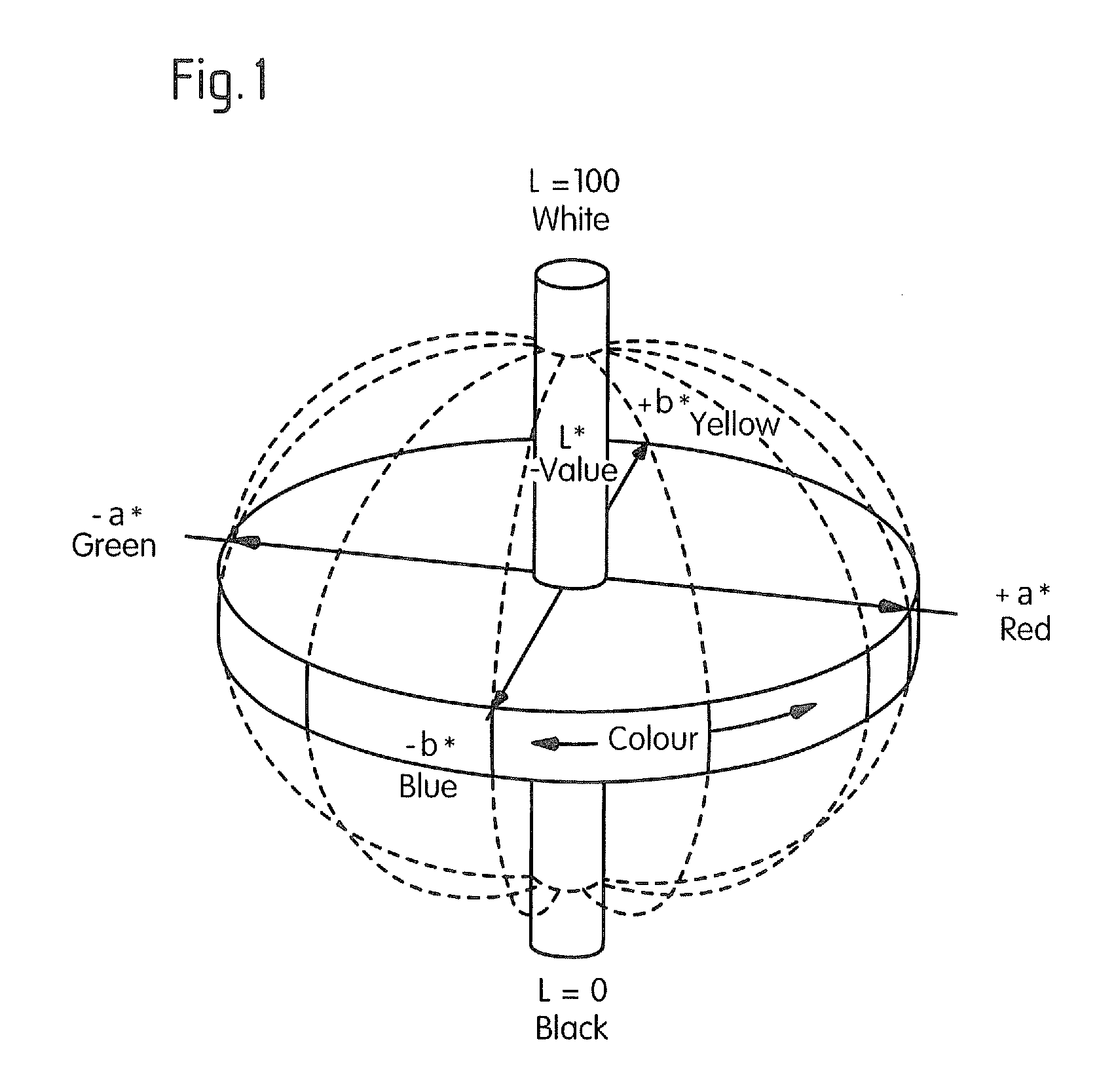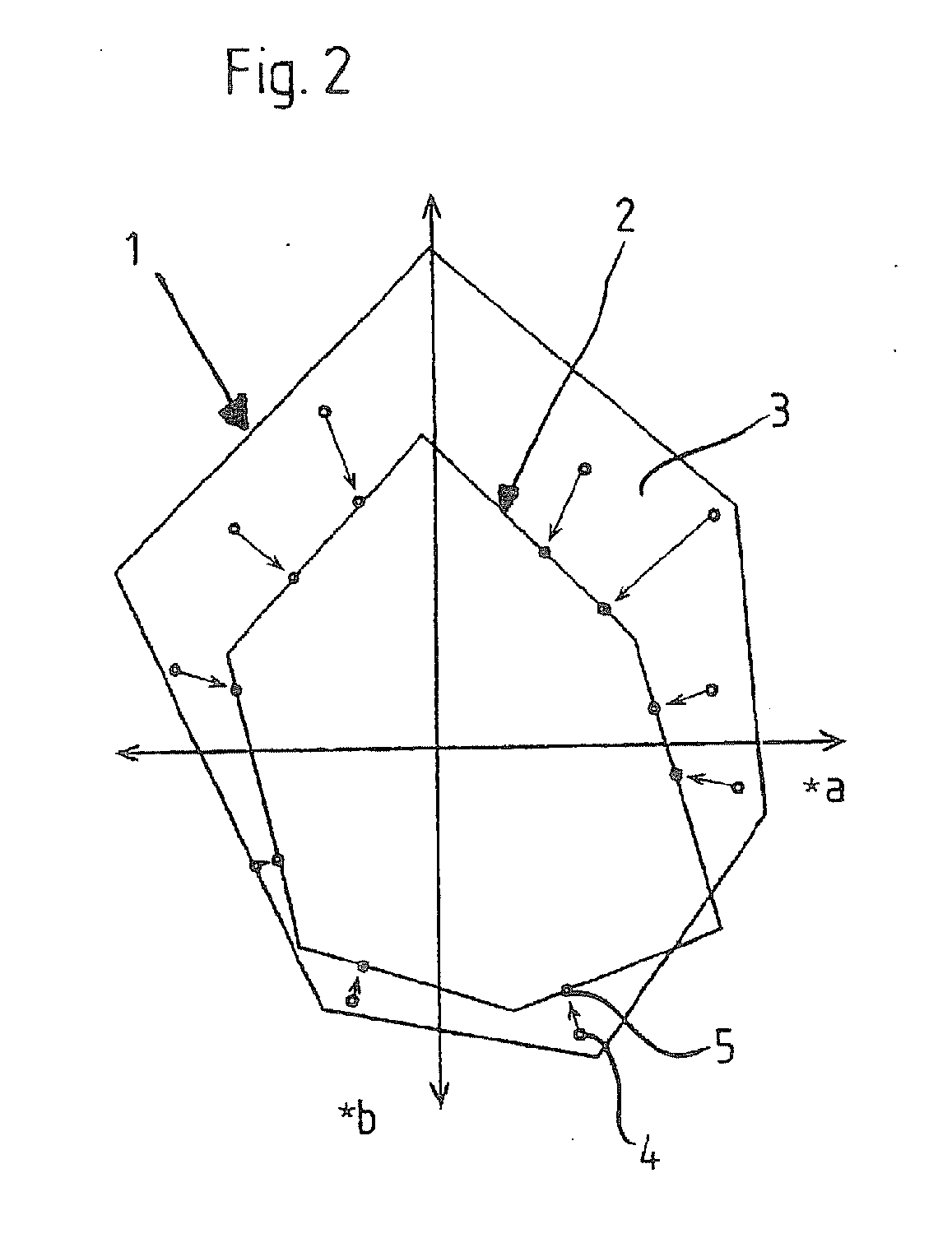Method for Transformation of Colour Values
a technology of colour values and transformation methods, applied in the field of transformation methods of colour values, can solve problems such as loss of optical details, dark zones, and expense of contras
- Summary
- Abstract
- Description
- Claims
- Application Information
AI Technical Summary
Benefits of technology
Problems solved by technology
Method used
Image
Examples
Embodiment Construction
[0017]In view of the above-described prior art the invention is based on the object of providing a method for transformation of an initial colour space to a target colour space, which method avoids the aforementioned drawbacks, hence especially minimizes an excessive compression of the colour space, losses of details and losses of contrast.
[0018]The technical solution of this object results from a method according to patent claim 1.
[0019]In the following further advantages and features of the invention will be described which, in particular, are essential for the invention also individually.
[0020]According to the invention, an initial colour space and a target colour space are assumed, both of which are related to a defined basic colour space. The initial and the target colour space may correspond to the same model. For instance, the colour space of a digital printer may be larger than the colour space of an offset printing machine, although both are controlled in the CMYK system. B...
PUM
 Login to View More
Login to View More Abstract
Description
Claims
Application Information
 Login to View More
Login to View More - R&D
- Intellectual Property
- Life Sciences
- Materials
- Tech Scout
- Unparalleled Data Quality
- Higher Quality Content
- 60% Fewer Hallucinations
Browse by: Latest US Patents, China's latest patents, Technical Efficacy Thesaurus, Application Domain, Technology Topic, Popular Technical Reports.
© 2025 PatSnap. All rights reserved.Legal|Privacy policy|Modern Slavery Act Transparency Statement|Sitemap|About US| Contact US: help@patsnap.com



